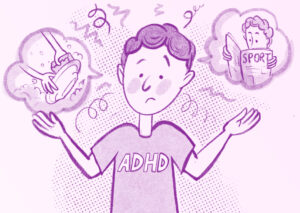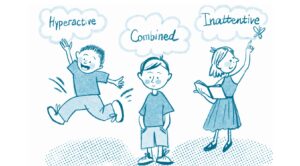In today’s fast-paced, emotionally demanding world, children are not immune to stress, anxiety, and emotional challenges. Just like adults, they can struggle with complex feelings, social issues, family conflicts, and even mental health disorders. However, unlike adults, children may not have the vocabulary or emotional awareness to express what they’re going through. As a result, many parents are left wondering: “Is this normal?” or “Should I get help?”
Child counseling can be a powerful and effective tool in helping children navigate emotional or behavioral difficulties. But the question remains—when should parents seek help?
In this comprehensive guide, we’ll explore:
- What child counseling is
- Common signs your child may need professional help
- The types of therapy available for children
- How child counseling works
- The role of parents in the counseling process
- How a child psychologist like Arpan Sarma can support your child’s well-being
Table of Contents
ToggleWhat Is Child Counseling?
Child counseling is a specialized form of therapy designed to help children and adolescents manage emotional, psychological, behavioral, or social issues. It is conducted by trained professionals—such as child psychologists or counselors—who understand child development and use age-appropriate tools and techniques like:
- Play therapy
- Art therapy
- Cognitive Behavioral Therapy (CBT)
- Talk therapy
- Family therapy
Child counselors aim to provide a safe, empathetic space for children to express themselves, process their experiences, and build healthier coping strategies.
When Should Parents Seek Help?
Every child experiences ups and downs—it’s part of growing up. But certain signs and behaviors may indicate that a child is struggling with more than just a passing phase. Here are key situations when you should consider seeking help from a child counselor:
1. Sudden Behavioral Changes
If your child begins acting out, becomes withdrawn, aggressive, overly emotional, or uncharacteristically quiet, it could be a sign of emotional distress.
2. Academic Struggles
A sudden drop in school performance, refusal to attend school, or difficulty concentrating may indicate underlying psychological issues.
3. Excessive Anxiety or Fear
Children who worry excessively, avoid social situations, or express irrational fears may be dealing with anxiety disorders.
4. Persistent Sadness or Depression
If your child shows signs of persistent sadness, low energy, tearfulness, or disinterest in things they once enjoyed, these could be signs of depression.
5. Trouble with Peers or Social Isolation
Difficulty making or maintaining friendships, bullying (either as a victim or aggressor), or social withdrawal can be red flags.
6. Family Conflict or Major Changes
Divorce, death of a loved one, moving, or welcoming a new sibling can be emotionally challenging and may require professional support.
7. Trauma or Abuse
Any experience of trauma—be it physical, emotional, sexual, or neglect—should be addressed immediately with professional help.
8. Self-Harm or Suicidal Thoughts
This is a critical sign that immediate psychological intervention is necessary. Always take self-harming behavior seriously.
9. Chronic Physical Complaints
Frequent headaches, stomach aches, or other physical symptoms without a medical cause may be psychosomatic expressions of emotional stress.
10. Parental Intuition
Sometimes, parents simply “know” something is off. If your instincts are telling you your child is not okay, don’t ignore that feeling.
Common Issues Addressed in Child Counseling
- Anxiety and depression
- ADHD and behavioral issues
- Learning disorders
- Grief and loss
- Divorce or separation
- Bullying
- Autism spectrum disorders
- Identity issues
- Social skills development
- Self-esteem and confidence
How Does Child Counseling Work?
Child counseling sessions are different from adult therapy. They are often more creative, interactive, and based on building trust over time. Here’s what you can typically expect:
1. Initial Assessment
The first few sessions involve gathering information from both the child and the parents. The therapist may conduct structured interviews, play-based assessments, or observe the child in a natural setting.
2. Therapeutic Techniques
Depending on the child’s age and needs, the therapist might use:
- Play therapy (for younger children): Toys, puppets, and games to express feelings
- Art therapy: Drawing and creative expression as a communication tool
- Talk therapy: Conversation for older children to verbalize their concerns
- CBT: Teaching children to identify and manage negative thoughts and behaviors
3. Parental Involvement
Parents play a crucial role in their child’s healing. The counselor may conduct joint sessions, provide parenting strategies, or recommend family therapy when needed.
4. Monitoring Progress
The therapist will set goals and track progress over time, modifying the treatment plan as the child evolves.
Benefits of Child Counseling
Child counseling can lead to:
- Improved emotional regulation
- Better communication skills
- Enhanced self-esteem and confidence
- Stronger relationships with peers and family
- Reduction in anxiety, depression, or behavioral issues
- Improved academic and social performance
How Arpan Sarma Supports Children and Families
As a trained psychologist, Arpan Sarma offers a compassionate, child-centered approach that tailors therapy based on the individual needs of each child. With a deep understanding of developmental psychology and emotional intelligence, Arpan provides:
- Safe, non-judgmental environments for children to open up
- Practical tools to manage emotions and behaviors
- Guidance and support for parents navigating tough situations
- Integration of family dynamics into the healing process
Whether it’s anxiety, trauma, learning difficulties, or behavioral challenges, Arpan uses evidence-based therapeutic approaches to help children regain emotional balance and thrive.
Tips for Parents Before Starting Counseling
1. Normalize the Experience
Explain therapy to your child as a positive experience, like going to a doctor for emotional health.
2. Be Patient
Therapy is a process. Change may take time, and progress may be gradual.
3. Stay Involved
Stay in communication with the therapist and attend parent sessions as needed. You’re part of the team.
4. Don’t Expect Instant Solutions
Avoid pressuring your child to “fix” themselves quickly. Growth and healing are ongoing journeys.
5. Support at Home
Model healthy emotional behaviors, create open dialogue, and maintain a nurturing home environment.
When Counseling is a Lifesaver
Many parents delay seeking help due to the fear of labeling their child or misunderstanding what therapy involves. But just as we wouldn’t hesitate to consult a doctor for a persistent fever, we shouldn’t ignore persistent emotional or behavioral signs in children.
Child counseling is not a failure of parenting—it’s a proactive step toward ensuring your child’s lifelong emotional and mental well-being.
Key Takeaways
- Child counseling helps children navigate emotional, behavioral, and social challenges.
- Parents should seek help when they notice persistent or concerning changes in behavior, mood, or functioning.
- Common therapy techniques include play, talk, art, and CBT.
- Parental involvement is key to successful outcomes.
- Child counseling can have long-lasting positive effects on emotional health and development.
Final Thoughts
Every child deserves to feel safe, understood, and emotionally equipped to face life’s challenges. If your child is struggling and you feel unsure of what to do, seeking help is not a sign of weakness—it’s a sign of strength and love.
Therapists like Arpan Sarma offer the expertise and empathy needed to help your child flourish. By addressing problems early, you’re giving your child the gift of healing, resilience, and emotional intelligence.
So, if you’re wondering whether your child needs help, remember this: It’s better to ask early than to wait too long. Your child’s emotional health is worth every effort.







